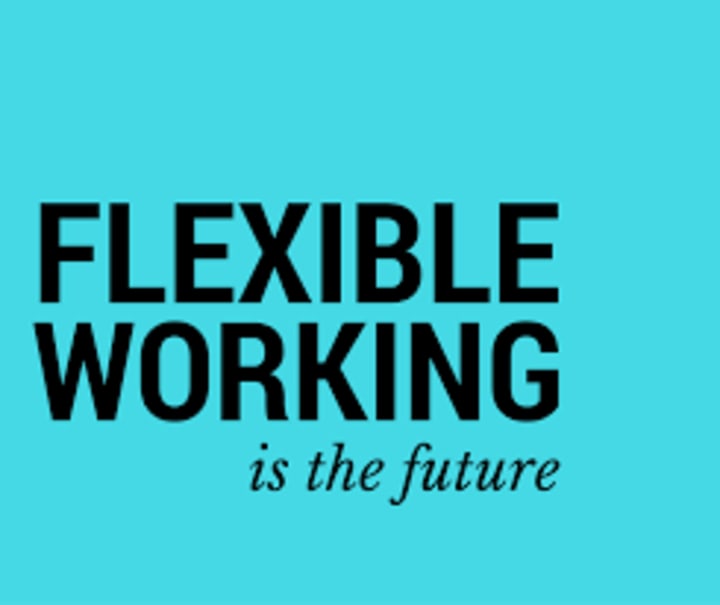
The future of work is rapidly changing, with automation and technological advancements playing a major role in the job market. As artificial intelligence and robotics continue to evolve, many industries are being transformed, leading to new job opportunities and a shift in the skills required to succeed in the workforce.
One of the most significant impacts of automation on the job market is the displacement of workers. Jobs that were once performed by humans are now being taken over by machines, leading to a decrease in employment opportunities in some sectors. For example, industries such as manufacturing, transportation, and retail are already seeing a decline in employment as machines become more capable of performing tasks traditionally done by humans.
In this article, we will explore how automation is changing the job market and the impact it is having on the workforce.
The Displacement of Workers

One of the most significant impacts of automation on the job market is the displacement of workers. Jobs that were once performed by humans are now being taken over by machines, leading to a decrease in employment opportunities in some sectors. For example, industries such as manufacturing, transportation, and retail are already seeing a decline in employment as machines become more capable of performing tasks traditionally done by humans.
This displacement of workers can be particularly challenging for individuals who have been working in these industries for many years and may not have the necessary skills to transition to new roles. However, it is important to note that the displacement of workers is not new. Throughout history, technological advancements have led to changes in the job market and the creation of new industries.
New Job Opportunities

While automation is leading to a decline in employment in some sectors, it is also creating new job opportunities, particularly in the technology sector. As new technologies are developed and implemented, there is a growing demand for workers with expertise in areas such as machine learning, artificial intelligence, and robotics.
Additionally, automation is leading to the creation of new types of jobs, such as data analysts, cybersecurity professionals, and software developers. These jobs require different skills than the jobs being replaced, such as critical thinking, problem-solving, and creativity.
The Importance of Lifelong Learning

As the job market continues to change, it is becoming increasingly important for workers to engage in lifelong learning. Lifelong learning refers to the ongoing process of gaining knowledge and skills throughout one's career.
With the rapid pace of technological change, it is no longer enough to simply learn a set of skills and rely on those skills for the duration of one's career. Workers must be willing to continually learn and adapt to new technologies and new ways of working.
To stay competitive in the job market, workers should seek out opportunities for training and development, such as online courses, workshops, and certifications. Employers can also play a role in supporting lifelong learning by providing opportunities for training and development and encouraging employees to stay up-to-date with the latest trends and technologies.
The Importance of Soft Skills

While technical skills are becoming increasingly important in the job market, it is important to remember that soft skills are also critical for success in the workforce. Soft skills refer to personal attributes that enable individuals to interact effectively with others, such as communication, collaboration, and adaptability.
As machines become more capable of performing tasks traditionally done by humans, it is soft skills that will become increasingly important for workers. Jobs that require a high degree of interpersonal interaction, such as healthcare and education, will be less likely to be automated, as these jobs require a range of soft skills that machines are not yet capable of replicating.
The Importance of Flexibility

As the job market continues to evolve, it is becoming increasingly important for workers to be flexible in their approach to work. This may include being open to new roles, new industries, and new ways of working.
To remain competitive in the job market, workers should be willing to adapt to changes and be open to learning new skills. This may require taking on roles that are outside of one's comfort zone or even outside of one's area of expertise.
Additionally, the rise of the gig economy and remote work is leading to new opportunities for flexible work arrangements. Workers may be able to work on a project basis, allowing them to work for multiple employers and gain a range of experiences and skills. Remote work also provides greater flexibility in terms of work location and schedule, allowing individuals to better balance their work and personal lives.
The Role of Government and Employers

As the job market continues to change, there is a growing need for both government and employers to play a role in supporting workers through these transitions.
Government can play a role in providing education and training programs that help workers develop the skills needed to succeed in the new job market. Additionally, the government can provide financial support to workers who have been displaced by automation and may need help transitioning to new roles.
Employers can also play a role in supporting workers through these transitions by providing opportunities for training and development, as well as flexible work arrangements that allow individuals to balance work and personal responsibilities.
Conclusion
The future of work is rapidly changing, with automation and technological advancements playing a major role in the job market. While the displacement of workers is a concern, automation is also creating new job opportunities and leading to the development of new industries.
To succeed in the new job market, workers must be willing to engage in lifelong learning, develop soft skills, and be flexible in their approach to work. Additionally, government and employers have a role to play in supporting workers through these transitions by providing education and training programs, financial support, and flexible work arrangements.
By embracing the changes brought about by automation, workers can position themselves for success in the new job market and contribute to the development of new industries and technologies.






Comments
There are no comments for this story
Be the first to respond and start the conversation.